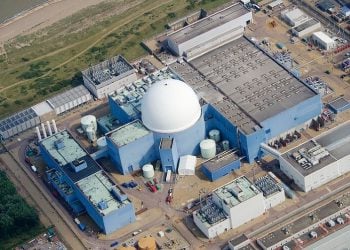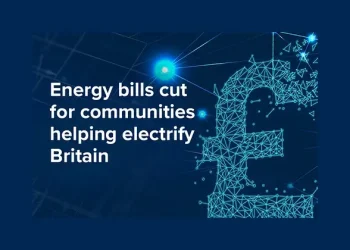The UK’s commitment to innovative nuclear technologies has taken a significant step forward. Holtec International’s SMR-300 Small Modular Reactor design has successfully completed the first phase of the rigorous Generic Design Assessment (GDA).
This milestone marks a crucial stage in the potential deployment of this advanced reactor design in the UK, ensuring it meets the highest standards of safety, security, and environmental protection.
Introduction
Holtec International’s SMR-300, a Small Modular Reactor (SMR), has reached a significant milestone by completing Step 1 of the UK’s Generic Design Assessment (GDA). This process, overseen by the Environment Agency, the Office for Nuclear Regulation (ONR), and Natural Resources Wales (NRW), is vital for assessing the reactor’s safety and environmental impact before any site-specific proposals.
The GDA Process: A Rigorous Assessment
The GDA process serves as a comprehensive evaluation framework, allowing regulatory bodies to assess new nuclear reactor designs. Holtec defined the scope and timeline for subsequent phases of the SMR-300 project, ensuring compliance with all regulatory requirements.
This initial phase is crucial for setting the foundation for more detailed technical evaluations, anticipated in the upcoming Step 2, which will span approximately 14 months.
What Does Step 1 Entail?
Step 1 of the GDA involved a thorough review of the information provided by Holtec International. The aim was to establish a detailed understanding of the SMR-300’s design and to agree on the scope for future assessments.
This phase ensured that Holtec’s design aligns with the UK’s stringent standards for nuclear safety, environmental protection, and waste management.
Summary of Step 1 Activities:
- Information Gathering: Regulators collected and analyzed detailed information about the SMR-300 design.
- Scope Definition: The scope and schedule for the next steps were established, focusing on the safety, environmental, and technical aspects.
- Regulatory Engagement: Continuous engagement with Holtec to ensure all regulatory guidelines and expectations are understood and adhered to.
Step 2 and Beyond
As the SMR-300 enters Step 2 of the GDA, the focus will shift to more in-depth technical assessments. This stage will involve a comprehensive evaluation of the reactor’s design, including safety systems, environmental impact, and overall feasibility for deployment in the UK.
Regulators will work closely with Holtec to address any issues or concerns that arise, ensuring that the design meets the highest standards.
During this phase, the public is encouraged to engage with the process, providing feedback and raising any concerns. Although this GDA phase does not include a formal public consultation, interested parties can submit comments and questions via the designated channels on Holtec’s website.
These inputs will be considered in the ongoing assessment, promoting transparency and public involvement.
Holtec’s Commitment to Safety and Innovation
Holtec International, through its UK-based entity Holtec Britain, has demonstrated a strong commitment to safety, innovation, and regulatory compliance.
The company’s efforts to align with the UK’s regulatory framework highlight its dedication to delivering a state-of-the-art nuclear solution that prioritizes both safety and environmental stewardship.
Tim Parkes, ONR’s Head of Safety Regulation for Advanced Nuclear Technologies, emphasized the importance of the GDA in ensuring that new reactor designs meet the required standards. He said,
“GDA is a vital part of ensuring new reactor designs meet the high standards of safety, security and environmental protection required in Great Britain.
Together with the Environment Agency and Natural Resources Wales, we have seen Holtec demonstrate readiness to move into Step 2 of the assessment where we can begin the technical assessments of the reactor.
Throughout Step 1, Holtec has been mobilising its delivery organisation to complete the GDA and we have been agreeing the scope for our assessment in Step 2.
We have improved our understanding of the generic SMR-300 design which will enable us to conduct a meaningful assessment throughout Step 2.”
Importance of Public Engagement and Feedback
Public participation plays a crucial role in the GDA process. While Step 2 lacks a scheduled public consultation, Holtec encourages stakeholders to review the SMR-300 information on their website and offer input.
This engagement helps ensure that the reactor design addresses all public and environmental concerns, fostering a transparent and inclusive assessment process.
To Summarize
The successful completion of Step 1 in the GDA for Holtec International’s SMR-300 Small Modular Reactor marks a pivotal moment for nuclear innovation in the UK.
As the process advances into more detailed assessments, the collaboration between Holtec, the UK’s regulatory bodies, and the public will be vital in ensuring that this advanced nuclear technology meets all necessary safety, security, and environmental standards.
With the potential to significantly contribute to the UK’s energy landscape, the SMR-300 stands at the forefront of the country’s nuclear future.
For more information you can visit the Holtec SMR-300 website
Sources: THX News & Environment Agency.









